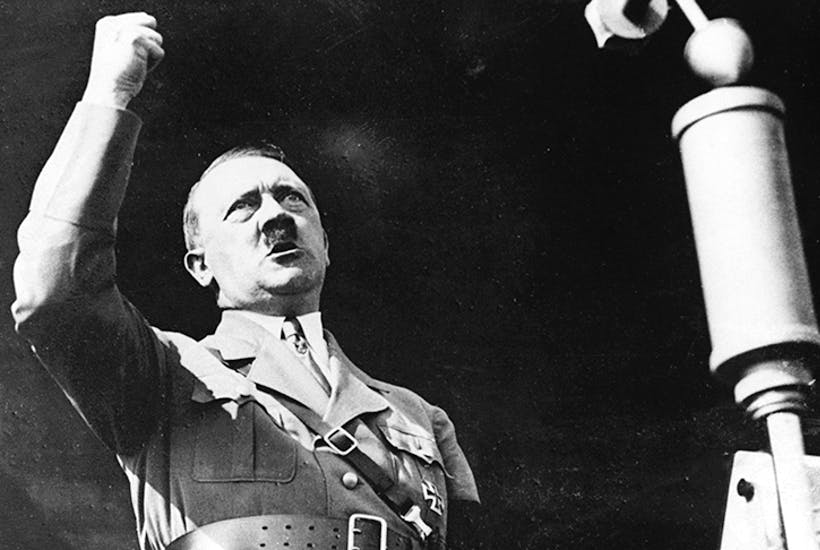Do we need another wrist-breaking book about Adolf Hitler, the Third Reich and the second world war? Since Ian Kershaw published his two-volume biography of the Führer 20 years ago, there have been at least a dozen similarly weighty tomes on the war by historians including Max Hastings, Andrew Roberts, Antony Beevor and Kershaw himself; not to mention more recent massive lives of the Nazi dictator by Brendan Simms and the German historians Peter Longerich and Volker Ullrich. So what is there left to say that we do not already know?
To gain attention, any new study has to have a thesis: some fresh angle that previous writers have overlooked or played down. For Simms, the overarching theory was that Hitler’s alleged obsession with the rising might of the USA led him and his people to disaster. For Longerich, it was his meddling and micro-managing in both military matters and every other aspect of life in the Reich; and for Ullrich the focus was on Hitler’s neglected ‘human’ side. For Frank McDonough it is the insane impossibility that Germany could ever have won the struggle launched against the combined powers of the US, USSR and the British Empire that was the Führer’s fatal flaw.
McDonough is an academic specialising in Nazi Germany, and he writes clearly and readably with just enough detail on the huge canvas that he covers. This book is the second volume of his history of the Reich, beginning at the acme of its triumph in 1940 and ending with its architect’s suicide in the shrunken troglodyte world of the Berlin bunker. Although McDonough spreads blame for the downfall and the Holocaust beyond Hitler and the SS to the slavishly subservient Wehrmacht, inevitably it is the demonic figure of the Führer, with his racial manias, who dominates the story.
Read the review by Nigel Jones of The Hitler Years: Disaster 1940-1945 by in The Spectator.

